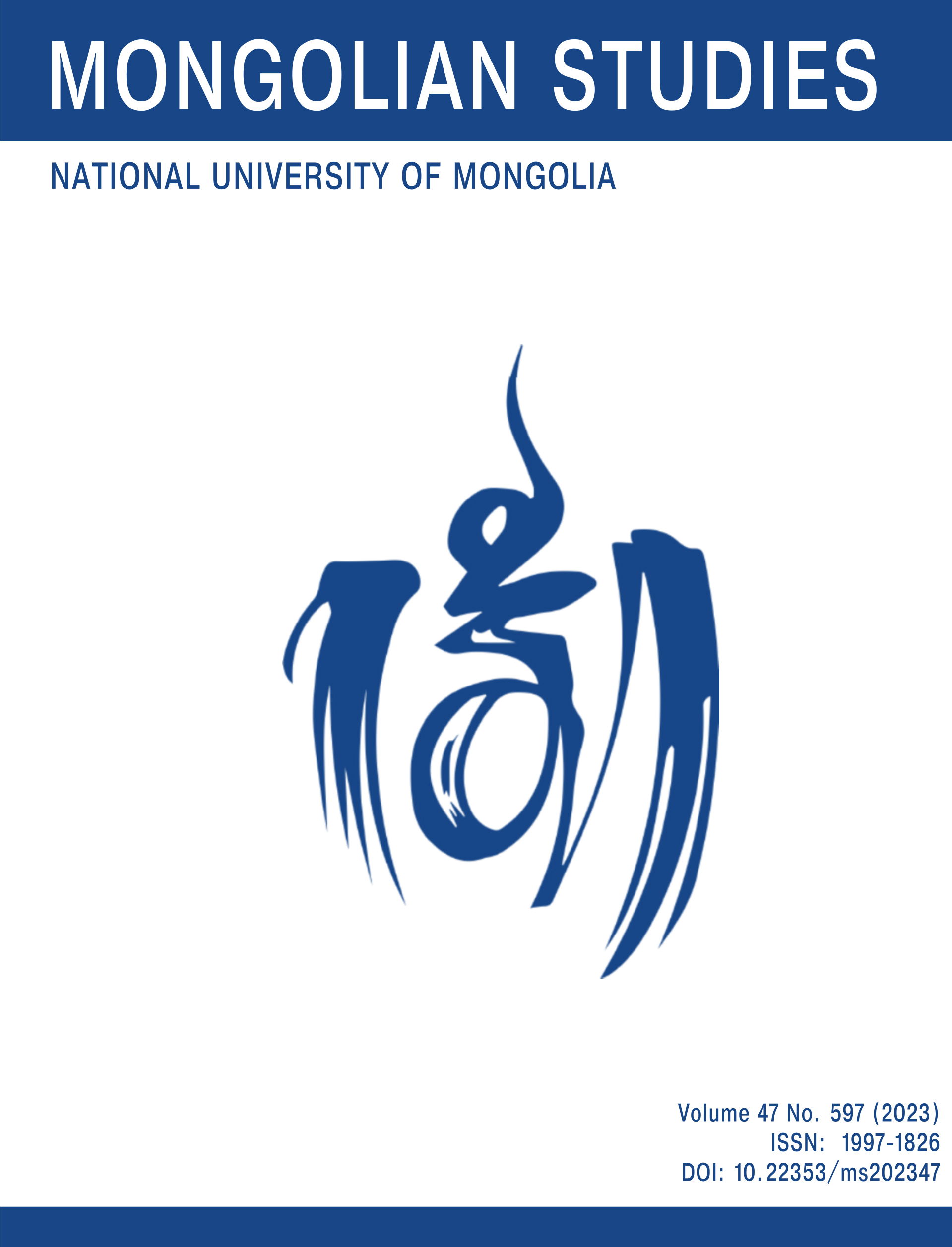Уламжлалт орчуулгын хэлний ойролцоо үгс, утга, түүхэн онцлог
The meanings and historical features of synonyms in traditional translation texts
Abstract
DOI: 10.22353/ms20234710
https://doi.org/10.22353/ms20234710
Different types of translation of the same textwork are the basic fundaments of the synonym formation.
The synonyms, one of the basic units of lexicology, express not only the nuances of the meaning but also play a crucial role in making the composition appropriate, meaningful, and eloquent. The synonyms can form in several ways, and here we tried to study the formation of the synonyms based on the several translations of “Subhashita” 1. Honourable word + ordinary word, 2. Written language word+ dialect word, 3. Synonym (mngon brjod ming) + ordinary word, 4. Archaic and historic words + new words, 5. Indigenous word + indigenous word, 6. Indigenous word + foreign word, 7. foreign word + foreign word, 8. idioms + idioms within the framework of the several different translations of the same work. During the research, while explaining some archaic and historic words, the origins of foreign words, the evolution of the meaning, and the usage with specific examples, we clarified from other sources, written monuments, and related dictionaries.





